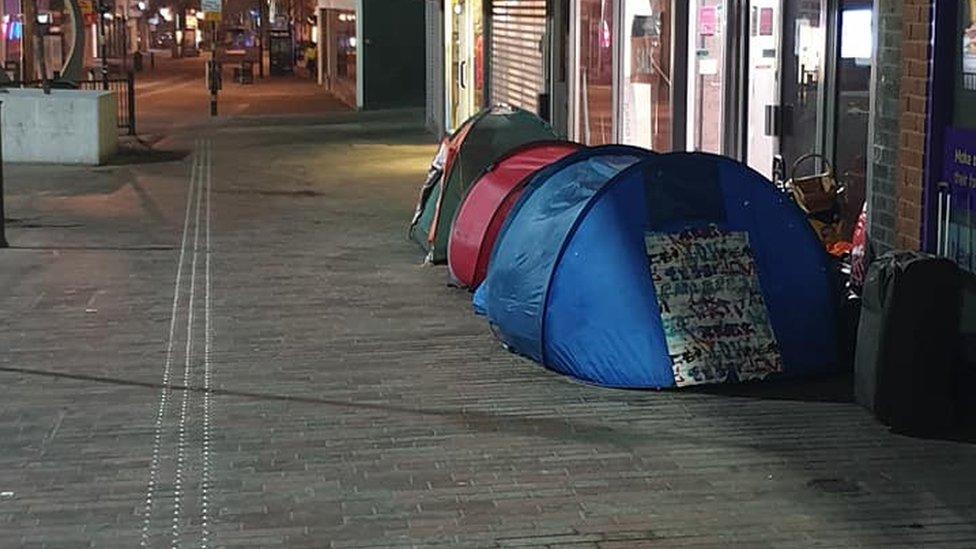Coronavirus: The town housing rough sleepers in student digs
- Published
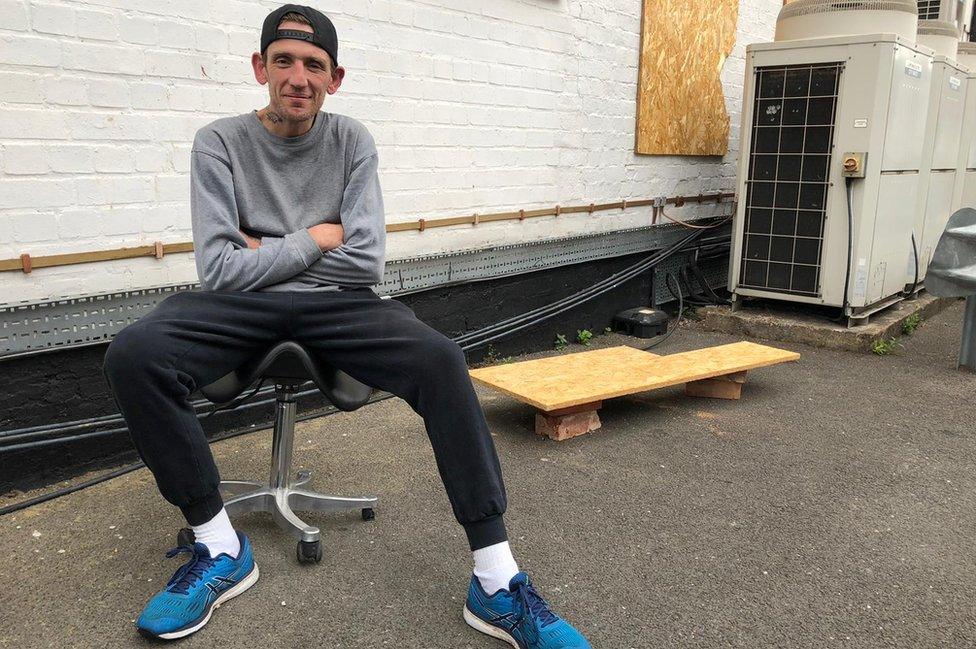
Daniel Stratford ended up on the streets after his 10-year marriage ended
As coronavirus took hold across England, money was found to put up rough sleepers in hotels. But what happens next? BBC News went to Northampton to find out.
Cradling his possessions in a few plastic bags, Daniel Stratford spent Wednesday morning moving home.
For the past few weeks, that home has been at a Travelodge in Northampton town centre.
But now he is settling into new surroundings - in student digs at the town's university.

Rough sleepers have been living in two hotels in the town
The 40-year-old "spiralled into homelessness" after his 10-year marriage ended. He spent three years on the streets of Northampton.
"I was living in a tent in a graveyard," he said.
"It was tough at first, but it had become almost easier to stay on the streets.
"I did lose all hope, I'd given up, I was drinking and basically self-destructing. I was broken-hearted."
Daniel's story is not unique. He was not the only one who needed help.

Daniel prepares to move into the university accommodation
When lockdown kicked in, councils in England were given £3.2m to provide emergency 12-week shelter for rough sleepers, with many making use of empty hotels.
Across Northamptonshire, about 200 people were offered emergency accommodation as part of the "Everyone In" project, but this scheme ended in the middle of June.
Despite its own financial woes, Northampton Borough Council found a way to extend the plan until the end of the month.
More than 140 people have spent at least one night in one of two hotels - and almost 80 of these were then helped into settled housing.
You may also like:
And from Wednesday, 26 rough sleepers have moved again - this time into one of the University of Northampton's halls of residence.
It means three square meals, clean clothing and toiletries, and support to find work and medical treatment.

More than 25 homeless people are now moving into student accommodation
"This has helped me massively," Daniel said.
"It's given me stability and routine, and a bit of hope to get a house.
"What is happening in the world with the pandemic is such a shame. But this is good - what has come off the back of it, for people like us."
Becky Bradshaw, director of estates and campus services at the University of Northampton, said it was an "opportunity to make a real difference to the lives of vulnerable people".
"We had the facilities here, it felt like the right thing to do," she said.
"I'm from Northampton and over the years I've seen an increase in the homeless community in the town centre. It must have been quite a scary place to be at the start of this pandemic."
Hugo Calado, 39, from Portugal, had spent two years surviving on the streets of Northampton.
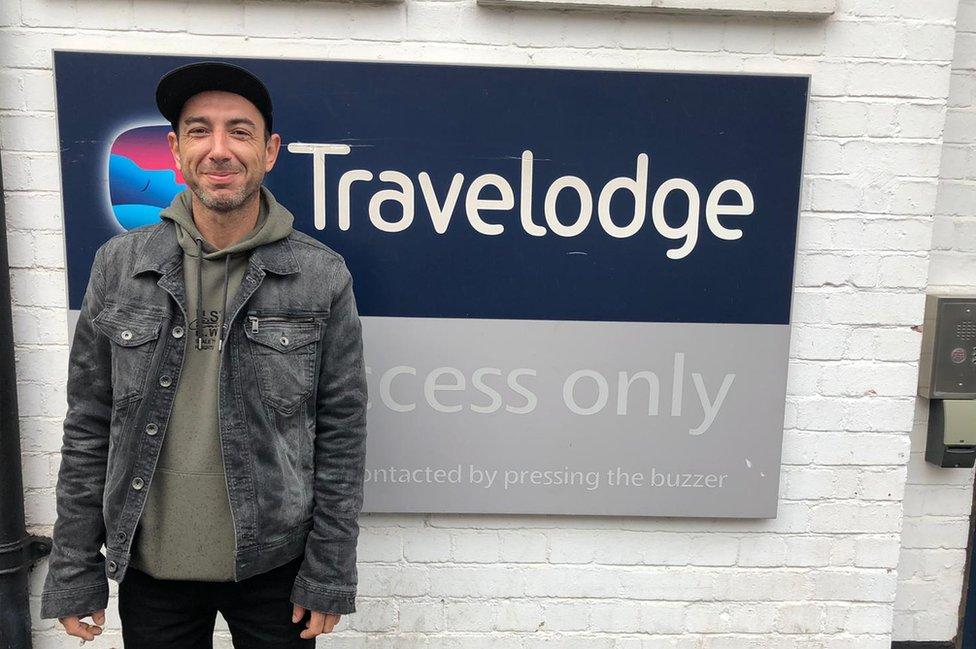
Hugo Calado: "We're not alone"
He fell into substance abuse. "It was quite a struggle," he said.
"When you are in that situation you realise you have no friends, no-one cares - to have that inside is like a big slap. I had to go deeper to lift myself up.
"I could see light at the end of the tunnel. I knew - we're not alone - someone will care for you. We don't realise it at the time because we are angry with the system. I'm speechless about all the work they have done."
Hugo has now secured his own place through the council.
"I just need to get myself a job and get back to a normal life," he said.
"Some people have different habits and addictions. I help others now - and they help me. That's the way I was brought up."
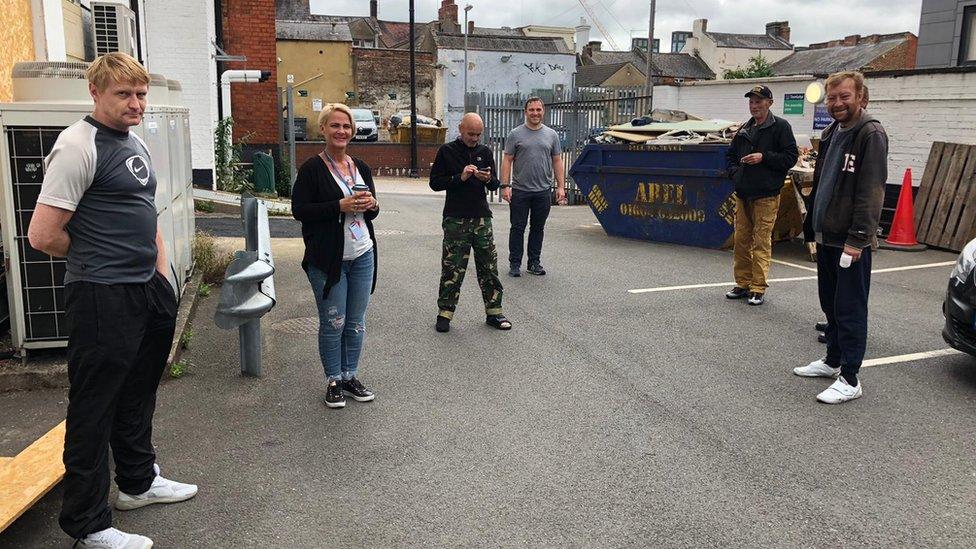
Amanda Wilson with some of the former rough sleepers in Northampton
It was the Single Homelessness Forum, external, made up of support agencies and church groups, that made the Everyone In scheme possible in Northampton.
Its chair, the Rev Sue Faulkner, said the priority was to "ensure that everyone was safe and indoors".
"Homelessness is not inevitable," she said.
"We need to keep offering help and support in order that when people are ready to make the changes in their lives, the support is there for them.
"There is hope for everyone even if they are not yet able to see it for themselves.
"We do not want anyone to feel lonely and struggle."
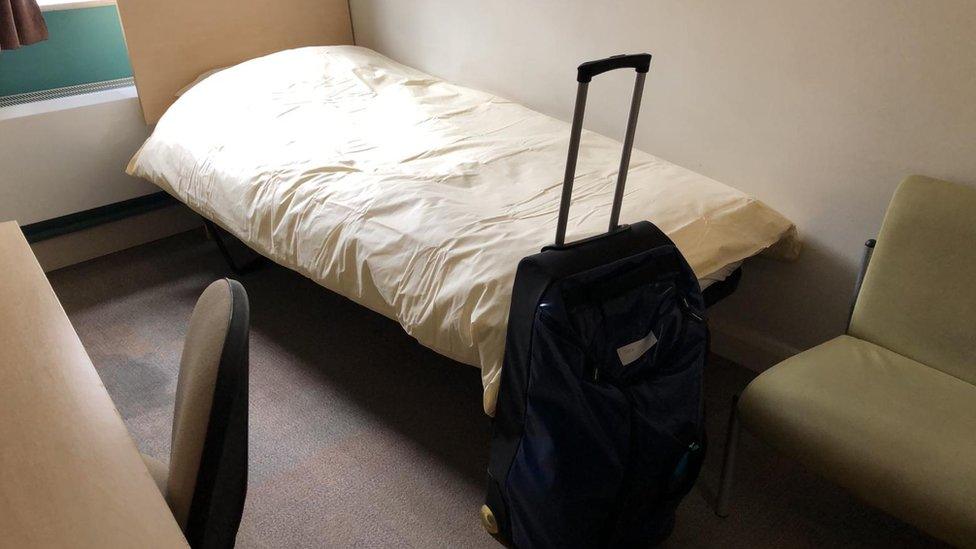
This student accommodation is home for the time being
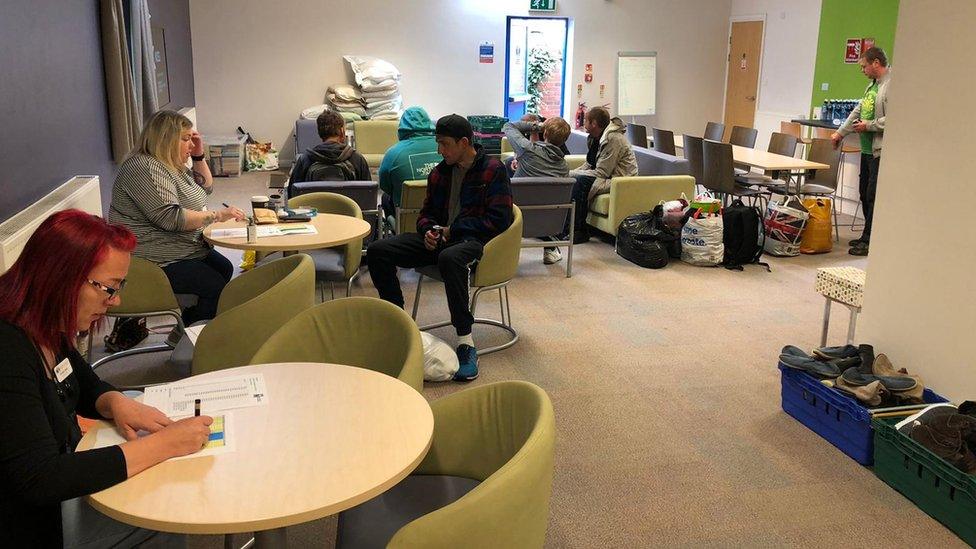
People signing tenancy agreements for their new temporary homes
Amanda Wilson, the council's street service co-ordinator, said people were "seizing the chance to improve their lives".
"We help them get bank accounts, benefits, doctors; it's a great relationship and we're more like a family," she said.
"Because they see us every day that relationship has grown, the dynamic has changed. Hearing people's stories, seeing their vulnerabilities, we've got to know every individual.
"Even just moving can raise anxiety levels. I try to stay positive. Some are very entrenched rough sleepers, but we've housed every single one.
"It's been challenging, but really rewarding."
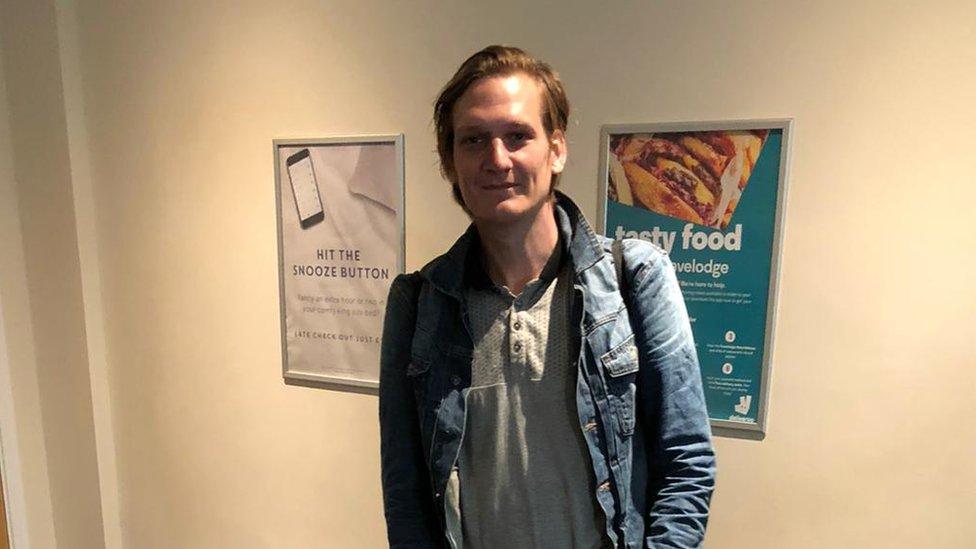
Victor Boranos found it difficult to find his feet after prison
Vojtech "Victor" Boranos, 35, found himself homeless after his release from prison. He slept rough for two weeks.
He has now moved with his partner into the student accommodation.
"I had been remanded for eight months, just waiting, then lost my house, my job, everything," he said.
"It would be a lot worse if it was winter. But thanks to good people, you can get lunch and dinner, a shower - everything you need.
"I've been homeless before and made it out before, but if you're waiting for someone to give you a job, accommodation, the chance to save money, it all drags, it can take months.
"This is the first time anyone has done anything for me. These are good people."
Find BBC News: East of England on Facebook, external, Instagram, external and Twitter, external. If you have a story suggestion email eastofenglandnews@bbc.co.uk, external
- Published12 June 2020
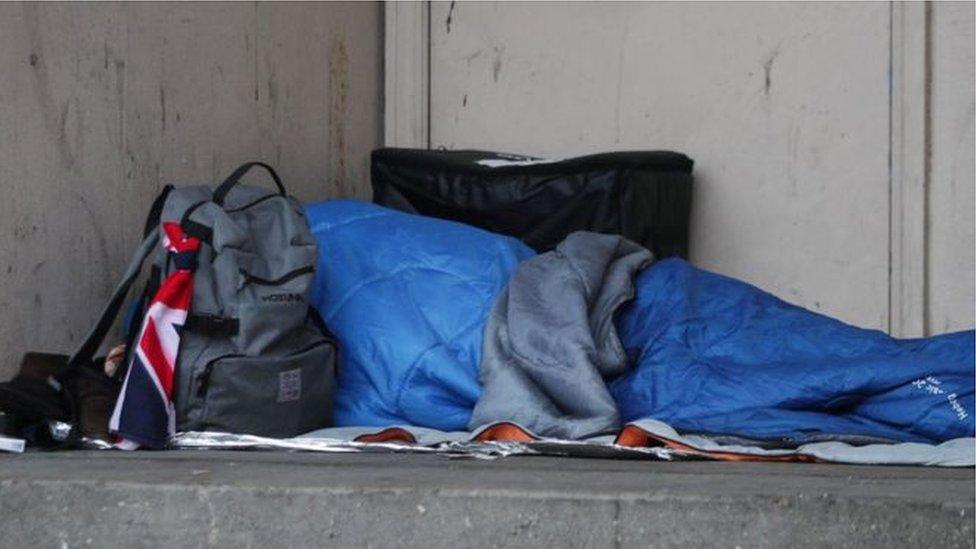
- Published28 May 2020
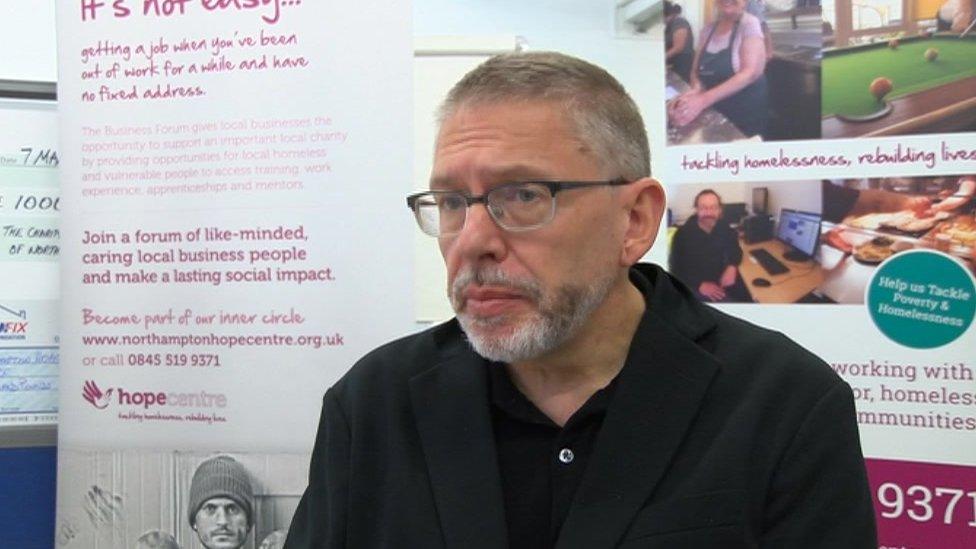
- Published26 May 2020
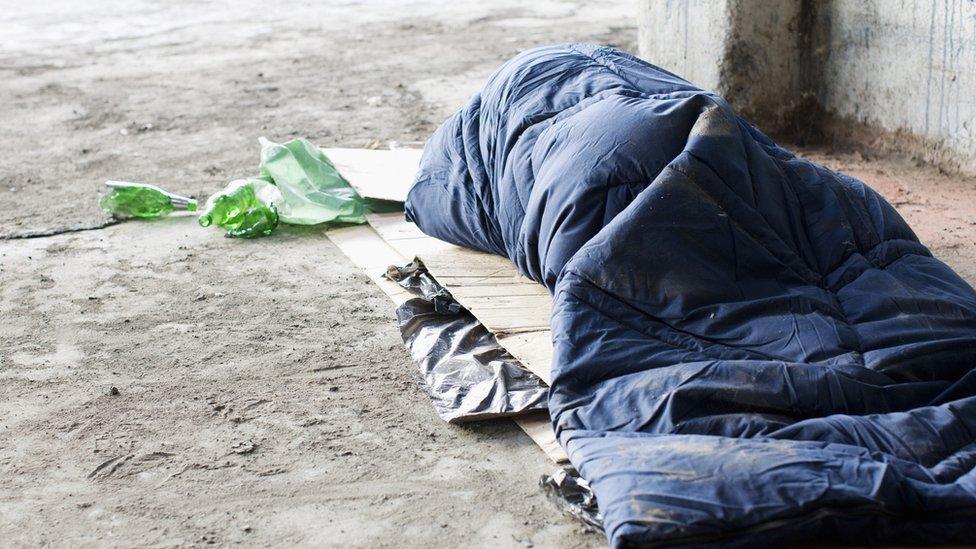
- Published13 May 2020
